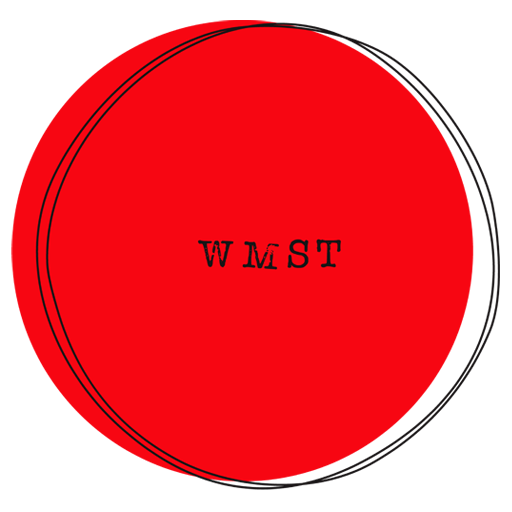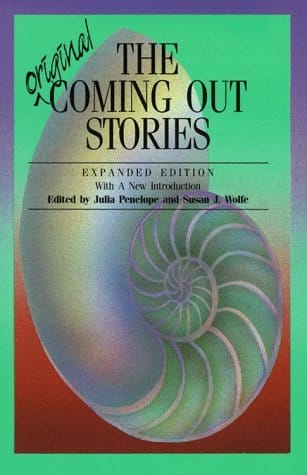For a list of Sapphic Circle meeting dates this fall, please click here.
We meet on specified Sundays at 12-1:30pm PT/3-4:30pm ET/7-8:30pm UTC.
Sapphic Circle is a space for lesbians to come together for thoughtful discussions on a variety of topics. We seek to build lesbian community through engaging in lesbian ideas, politics, media, and more!
Origins
Lesbians have been recording our existence and experience for as long as we've been able to write. One popular historical example is the I Know My Own Heart: The Diaries, 1791-1840 by Anne Lister, edited by Helena Whitbread. Women knew that they loved women and they knew their experience was outside the norm, but they rarely had a sense that they belonged to a group of like-minded women.
From the 1950s into the 1970s, with publications like The Ladder (1956-1972) and Lavender Woman (1971-1976), lesbians were collectively describing themselves. In 1973, Jill Johnston's book, Lesbian Nation: The Feminist Solution very clearly described a shared experience of lesbianism. It was widely read by feminists and lesbians alike, for the first time sharing lesbian lives outside the niche that was privately shared lesbian periodicals, shipped in plain brown paper wrapping.
By the 1980s, into the 1990s, lesbian narratives around discovering your sexual orientation, struggling with it, pining after a friend, building a self conception of lesbianism and eventually, coming out, were commonplace. And it was in this decade that lesbians started to earnestly record the particulars of those experiences. Thanks to women like Julia Penelope, Susan J. Wolfe, Sarah Hoagland and Sarah Valentine, we have many options when looking for a glimpse into the lesbian herstory of coming out.
A Glimpse Of The Past
Here are some excerpts from some books cataloguing the diverse experiences of lesbians coming out.
From the Introduction of The Coming Out Stories, edited by Julia Penelope and Susan J. Wolfe (1980), page XV
Claiming a Lesbian identity has been easy for some, a long and tortured journey for others; some wimmin have loved a womon and only years later decided that they are Lesbians, while others have discovered their Lesbianism and then set out to seek other Lesbians. However we have arrived at our Lesbian identity, whatever labels we have donned and shed in the process, we have eventually discovered ourselves in a society that denies our existence.
From Chapter 4, At Nineteen by Deidre McCalla, from The Coming Out Stories, edited by Julia Penelope and Susan J. Wolfe (1980), page 12
I came out because of Sharon. There were no long, painful years of suffering in silence, nor any early adolescent fears of being sexually different. I never went to a summer camp and to the best of my recollection, never had a crush on any of my gym teachers. During my freshman year of college I was primarily concerned with peace activism, learning how to smoke dope and be cool about it, and keeping my head above academic water. I was a virgin, asexual, intuitively feminist, and benignly aware that most of the men on campus were not worth my time. In my sophomore year, at nineteen, there was Sharon.
Sharon Lane crashed upon the campus green wearing oversized electrician's boots, two Linda Jeness buttons, a white sweatshirt emblazoned with a flaming red-fisted women's symbol, and blue jeans so dirty they would have stood on their own if she someday fancied a notion to remove them from her person. She chain-smoked Marlboros, stared straight into your eyes when she asked for information, and, unlike the other incoming freshmen, she did not scream, giggle, or laugh; in fact, she rarely smiled. The only visible evidence that Sharon had ever been a typical american teenager was the extremely wellscrubbed face hidden beneath a mass of tangled light-brown split-ends, living testimony to her thorough embarrassment at contracting something so counter-revolutionary and bourgeois as acne.
From Remember What That Means by Martha S. Pillow, The Original Coming Out Stories, edited by Julia Penelope and Susan J. Wolfe (1989) page 106
It took a long time to gain a useful understanding of the way things are, to get over letting other people make you feel guilty, ashamed, and frightened. Years later you still have occasional twinges of fear and selfhatred. Can anyone who has not gone through this understand how long those feelings can hang on, how long they can keep you back, silent, in your place? You’re really a tough womon, even though you don’t always think you are, you don’t always feel like it. Just look at what you've lived through.
The womon sitting across the table from you smiles and you smile in return, coming gently back into the present. She runs her hand over the wooden table she bought and fixed up. The grains of the wood stand out in the sunshine streaming in through the window. It is a different spring from the one five years ago. You reach out and capture her roaming hand in yours. Only a womon who has survived the years would understand the freedom in that movement, the release from isolation. How can you explain how the hurt and the trembling fear suddenly become memories with that positive action, that open feeling? There are so many stories to tell, so many fragile memories to share at last with womyn who understand. It’s been a long time since you’ve felt any real understanding. Yet here it is at last, the chance to share the feelings, the all-too-common experiences. You really aren’t as alone as they want you to believe you are.
There are more scenes, more ways to come out. The process is a long one, going on daily. Coming out: so many feelings around that phrase, twisting about memories in and around your being. Have you explained yourself adequately? Can anyone explain herself adequately? This writing is as difficult as any, but it is important to have written. It is important to begin to tell the stories.
Today
Here are some anonymous statements by lesbians coming out in the recent past.
Is it really that wrong for me to be only female attracted?
My case is not as bad as the others', but I genuinely don't feel safe coming out. I started doubting my identity yet again: am I really a lesbian? Is it really that wrong for me to be only female attracted? ... Ugh I feel so hopeless and I'm only 16. (Anonymous, 2021)
I want to go out in public with my girlfriend without people saying that we're not homosexual because she's masculine and I'm feminine. (Anonymous, 2021)
I came out expecting to find community and instead I have been rejected and confused about where my community and peers truly are. (Anonymous, 2021)
How Much Has Really Changed?
A quote by Susan Leigh Star, from the Introduction of The Original Coming Out Stories, edited by Julia Penelope and Susan J. Wolfe (1989) page 11
You understand this has to be a kaleidoscope: layered, multiple, alternately foggy and clear. Coming out. And going back in. And peeking through the keyhole. Different parts bubble up from time to time. There’s no such thing as a linear Lesbian.
From The Part I Left Behind by Sarah Valentine, from The Original Coming Out Stories, edited by Julia Penelope and Susan J. Wolfe (1989) page 176
The next day I called her again, hoping she would explain to me how her feelings could change so drastically. She told me that I had ruined her life and she wanted nothing to do with me. She was going out with a guy she knew from her hometown. As I hung up the phone the gut-wrenching pain returned. My body was being torn into a thousand pieces. All my energy went into keeping my body parts from flying away. I couldn’t talk Or Open my mouth because I knew all the liquids in my body would flow out through my eyes, and my mother was in the room.
The phrase ‘‘It was worth it’” went over and over in my mind, like a mantra. I knew if I just kept repeating the phrase | would survive.
Questions To Consider
- How would you describe the concept of "coming out"?
- What are the primary emotions you felt before coming out?
- What emotions did you feel after coming out?
- What do you think the difference is between coming out 40 years ago, 20 years ago and now?
- What are the similarities between coming out 40 years ago, 20 years ago and now?
- What are your thoughts about how the concept of "coming out" is used by the entire LGBTQ? Does it make sense to you that we share this term?
- Do you think narratives around coming out are helpful or harmful?
- Given our understanding of the feminist analysis of sex politics in our heterosexist society, do you see any issues with the specificity or the vagueness of the concept of "coming out"?
References
Penelope, J. P., & Wolfe, S. J. (1980). The coming out stories. Persephone Press.
Penelope, J., & Wolfe, S. J. (1989). The original coming out stories. The Crossing Press.
Unspeakable. (n.d.). Finding a language for female experiences in the LGBTQ+ community. https://unspeakablelgbtq.weebly.com/
FAQs & Code of Participation
If you have questions, please read over Sapphic Circle's Frequently Asked Questions and review our Feminist Code Of Participation.





